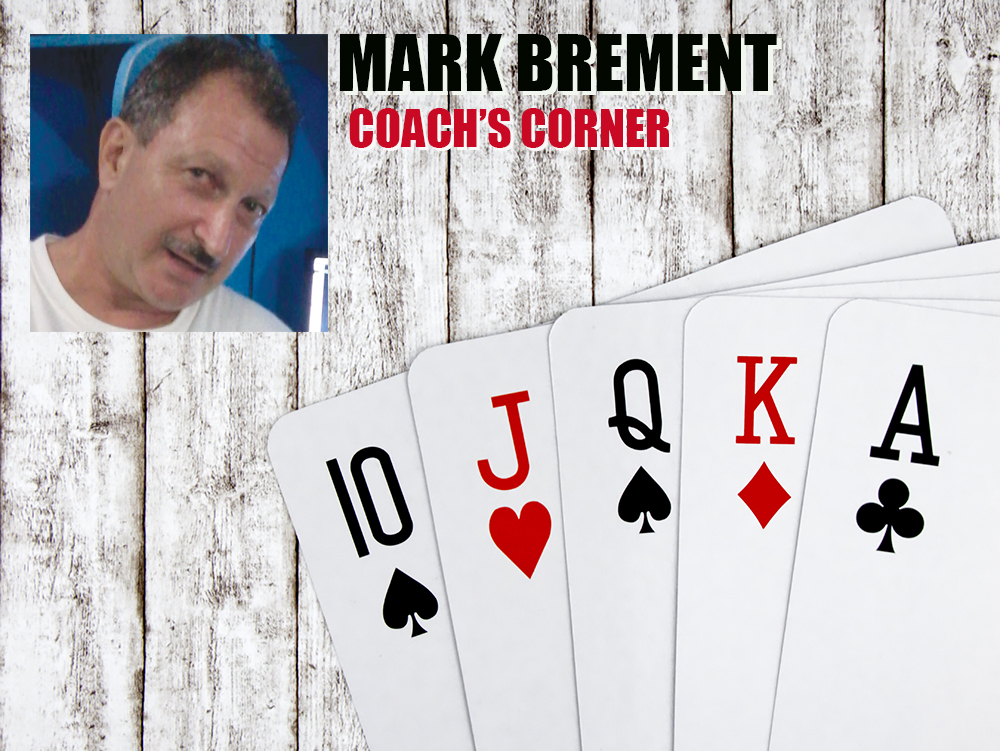Last issue, I stressed player performance in relation to the internal clock and covered how professional athletes are more likely to blunder at “off peak” times of the day.
In my poker history in playing on my homecourt, there was a significant difference in my hourly earn rate. Feeling good and being at your best is a key facet to poker success.
Any player who travels and plays will confess to some out-of-character blunders, which cost him dearly while on the road.
Let’s delve into an intangible, which is of utmost importance. Players forget our win rate, or hopefully not our losses, are tied to opponents. In other words, it’s the pitching and not the hitting.
If you’re the 21st best player in the world and are usually running over the game, pit yourself against eight players in the top 20. Obviously your win rate will be drastically affected.
Many hometown heroes head to Las Vegas with the idea that if they use strong money management and hone their skills they will earn more money than in their prior career where they maintained a day job. More often than not, this player ends up back in the cubicle.
What he forgot to factor in is, who are his opponents? Trust me, the “B” player who will walk a country mile to find a soft game is earning more at the game than an “A” player who battles a tough game enjoys, but plays in every day.
So who would you rather be?
Here are a few ideas you must use if you’re determined to notch it up a level in terms of your hourly rate.
ASSESSMENT: I had a 1-2-3 system in which I rated each player a 1, 2 or 3 and if the average exceeded a certain amount, I would limit my play to three hours.
If the table didn’t get juicier, I would leave. I also tended to rate opponents much stronger than my buddies did. “That guy is such a fish,” is something I would hear when I rated the player quite high. We must assess opponents objectively.
TABLE CHANGE: How often do we see a $2-$5 player move to smaller stakes when he could obviously earn more at a $1-$3 game that night? Not very.
If you see a juicy game that would be more lucrative, don’t be shy about moving there.
Our hourly rate is tied to how poorly opponents play, not how great we play. Now that’s a blow to the poker ego.
— Mark Brement has spent 15 years teaching and coaching all facets of poker, including at Pima Community College.




